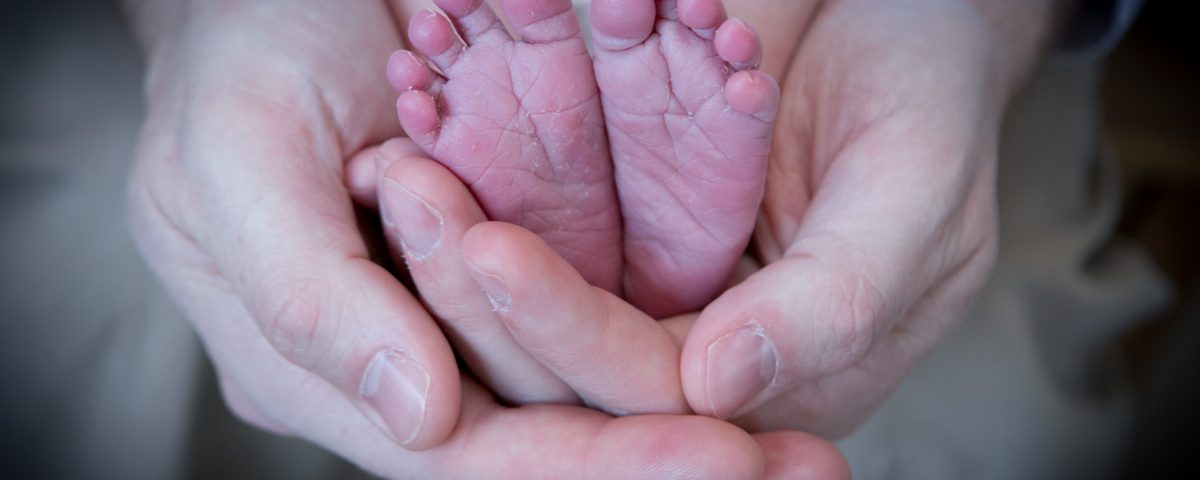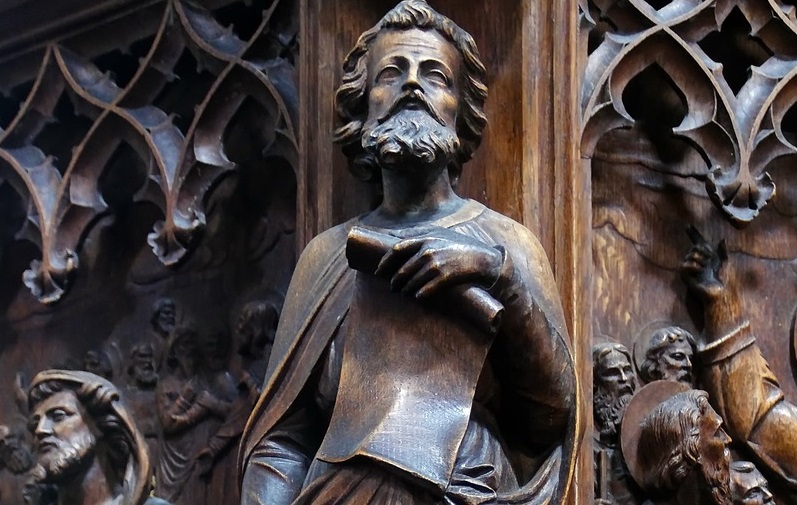After my first child was born, I’ve come to think a newborn baby the most persuasive thing there is about God.
As a matter of theology, I learned long ago that God and human life were intimately intertwined, that God’s knowledge and love for us precedes even our formation in the womb (Jer. 1:4). As a young man, I learned from Saint John Paul II that my life was a gift and not entirely my own, that my life, and indeed all life, should be seen and cherished as a gift invested with rights inseparable from the will of God and not some late theory of autonomous subjectivity, some hidden will-to-power.
Intellectually, I knew this, but when my wife and I failed for years to conceive a child, month after month weeping over what wasn’t happening as readily as we expected, some sort of anger and tender sadness invaded our souls, and we began to see the gift of life as something frighteningly sublime, something we couldn’t control or command. All we could do was pray with Hannah-like sadness. “See my humiliation!” (1 Sam.1:11) was our prayer in those years, bitter prayer some of you may know. Desire and pain now marked what had previously been but an academic view of life. We desperately wanted life, and in failing to conceive life we discovered how false was the notion of completely controlling it, of calling it forth and disposing of it upon command, how sinister such an illusion.
Graciously, though, in the fullness of our time, Magdalene was born. Nothing is more religious, outside of the most tremendous sacraments of our faith, than the birth of a child. My wife, at once more frightened and stronger than she had ever been in her life, gave to this world a beautiful human being, one divine gift among trillions, but more precious to me than anything else. At this moment, bitter lament gave way to unearthly joy, and thenceforward my view of life became something more visceral than intellectual. Now, I could recognize the emotion, anger, love, and invitation of Evangelium Vitae. I understood the sainted pope’s anger and passion against the “conspiracy against life” (EV 12). I knew what he meant.
In my meditation I sometimes imagine heaven.
Beautiful, of course, heaven must be, but in my vision it’s also stark and silent surrounded by the eerie horizons of war. I see the Blessed Mother, regal and resplendent, but her eyes are red and her face is dry, pale, and worn by too much crying. She stares forward silently. Attending angels look with her, each aghast at the sight—some even jostling to wage the final holy war of heaven. The singing of Ave has stopped, and her countless children are silent, like children shocked out of their playful joy. Among them, a few begin to cry. Heaven sees the holocaust of her children, and our violence stills the joy of angels.
These are things I just see and know in the same way I know and love my children, four now. I’m convinced by them, completely vanquished by my love for them that just is—love given in the sacrament of their smiles. I know now in a way I didn’t know before that life is from God, a gift invoking all the jealousy of heaven. Thus, especially now, I am mystified by Catholics who see the good of abortion under any circumstance. I’m mystified even by those who do not share the anger of heaven. Give me your reasons, and I will give you inexplicable love and the face of a little girl. There is no excuse. It is evil. I am mystified by such Catholics, more heartbroken. I think of what Jesus must’ve felt—his sunken heart and breathless tears, turning to receive the false kiss in Gethsemane. One of his own brought the instruments of death to bear upon the innocent. I think I know what he must’ve felt.
I give you no rational arguments. I make no appeals to natural law. I just beg you to see. Look at the persuasive beauty of life. Pray to see. Don’t arm yourself with your alleged common sense.
Again, I imagine heaven: The Lamb that was slain steps forward. Those crying, now pray, and the Blessed Mother speaks. “Look!” she says to the Lamb. “Say it again!” she begs. “Say it again! Forbid them not! Rebuke them again! Call your children! Forbid them not!” Her prayers are perfect.
The Lamb does speak. “Let the children come to me,” he says (Mk. 10:14).
And so, the eternal verdict is given, and all earthly tribunals stand judged.










